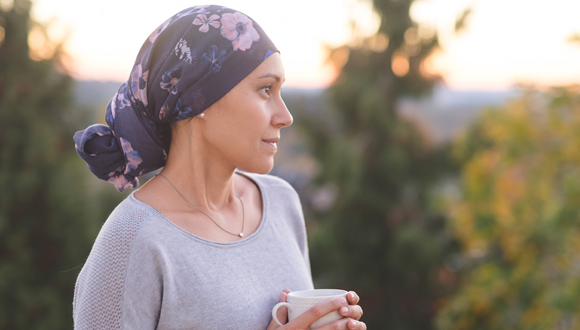Cancer & COVID-19: 3 Things Our Cancer Experts Want You to Know
May 5, 2020 - Katie McCallumAs the restrictions put in place to prevent the spread of COVID-19 begin to ease, you may be wondering what this means for safety — especially if you or a loved one has cancer and is more vulnerable to a severe case of the illness.
"Anyone can get COVID-19, but having cancer and receiving some types of cancer treatment can put a person at higher risk for developing complications from infection with the new coronavirus," says Dr. Jenny Chang, director of Houston Methodist Cancer Center.
This means that, even as our communities begin to reopen, cancer patients, as well as caregivers of cancer patients, should continue to take precautions to protect themselves from COVID-19.
Here's what the oncology team at Houston Methodist Cancer Center wants you to know about COVID-19.
Some people are at higher risk than others
"Some types of cancer affect the immune system by either changing the way immune cells work or damaging natural barriers that prevent infection," says Dr. Jorge Darcourt, medical oncologist at Houston Methodist Cancer Center. "In addition, several of the ways in which cancer is treated can suppress or weaken the immune system."
The cancer patients most at risk for developing complications from COVID-19 include those who:
- Are over the age of 60
- Have a type of cancer that affects the immune system, including leukemia, lymphoma and multiple myeloma
- Have an additional chronic health condition, such as lung disease, heart disease, moderate-to-severe asthma or diabetes
- Are currently receiving or have recently received a cancer treatment that suppresses the immune system
- Live in a nursing home or long-term care community
Different cancer treatments affect the immune system in different ways, as well as for varying periods of time. For instance, chemotherapy, radiation therapy and immunotherapy can have short-term consequences on the function of your immune system, while surgery and bone marrow or stem cell transplants can have longer-lasting impacts.
If you're a cancer survivor and you haven't been treated for cancer in some time, it's likely that your immune function has recovered. However, everyone is different.
How to protect yourself from COVID-19
Since having cancer and receiving cancer treatment can put you at a greater risk for becoming seriously ill, it's especially important for cancer patients, survivors and caregivers to take steps to protect themselves, or their loved ones, from getting COVID-19, including:
- Practicing excellent hand hygiene regularly
- Avoiding touching your eyes, nose and mouth
- Practicing social distancing, including staying home as much as possible, keeping six feet between yourself and others and wearing a cloth mask when in public
- Avoiding and distancing yourself from people who are sick
- Cleaning and disinfecting commonly touched surfaces around your home and avoiding high-touch surfaces when in public
- Avoiding travel
"You may also want to consider talking to your care team about whether your specific condition or lifestyle factors warrant additional precautions," Dr. Chang adds.
Lastly, it's important to know the symptoms of COVID-19, as well as what to do if you think you have COVID-19, so you can ensure you're prepared and ready in the event you do get sick.
Your cancer care team is taking steps to protect you, too
At Houston Methodist Cancer Center, your safety is our top priority. As soon as the number of COVID-19 cases began to rise in the Houston area, our experts began evaluating which cancer surgeries and procedures could be postponed. We also transitioned many in-person appointments to virtual video visits.
"To protect our patients, as well as do our part to conserve personal protective equipment and maximize operating room and ICU capacity, we leveraged our robust tumor board to triage essentially every patient," explains Dr. Nestor Esnaola, surgical oncologist and surgical director of Houston Methodist Cancer Center.
Tumor boards are meetings where cancer specialists from multiple disciplines collaborate to determine the best treatment plan for each patient.
"By discussing and examining each case as a team, we identified which surgical cases were urgent and which could be safely delayed (either without treatment or with preoperative chemotherapy and/or radiation) until we understood more about the trajectory of the outbreak," explains Dr. Esnaola.
Now, as coronavirus cases plateau in Houston and our COVID-19 patient population has stabilized, we're confident that it's safe to resume all medically necessary cancer surgeries and procedures.
Whether you're visiting our hospitals and clinics for a physical exam, testing or a medically necessary surgery, know that we're taking steps to keep you safe. These steps include:
- Requiring all patients, visitors and employees to wear masks
- Screening patients and employees upon arrival
- Practicing social distancing in our waiting rooms
- Increasing housekeeping and vigilance in our disinfection protocols
We're also continuing to leverage telemedicine to conduct checkups and appointments whenever possible.


